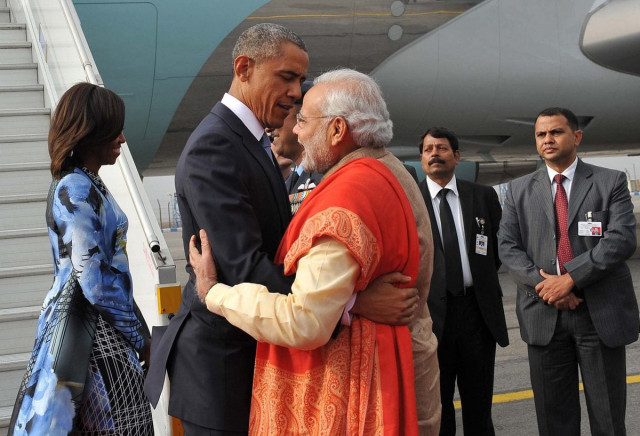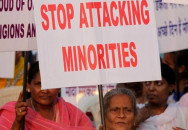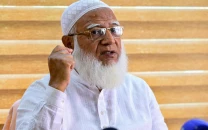Making wiggle-room
Obama during his visit to India had “privately encouraged and pushed” Mr Modi to re-examine his approach to Pakistan

In this handout photograph released by the Press Information Bureau (PIB) on January 25, 2015, Indian Prime Minister Narendra Modi (C) and US President Barack Obama hug as the president and US First Lady Michelle Obama (L) arrive in New Delhi. PHOTO: AFP

It now emerges that President Obama had “privately encouraged and pushed” Mr Modi to re-examine his approach to Pakistan, which has been rather less than conciliatory since his election. It is of particular note that President Obama pointed out that Pakistan was taking “serious steps” to eradicate terrorism, and had moved decisively to ensure that the alleged architect of the Mumbai attacks remained behind bars. There is now a suggestion that talks may resume as early as sometime in March and if so, then this is a move that we warmly welcome. It should be no surprise that it has taken so long for this information to surface, as India does not want to be seen to be taking ‘dictation’ from the US. That said, the relationship between India and the US is undergoing an overhaul itself, and that may play in the end to the advantage of Pakistan in that the US may be able to create wiggle-room where before there was none. Ideally, both sides should elect to recast their paradigms, but that may be a wiggle too far — at least for now.
Published in The Express Tribune, February 3rd, 2015.
Like Opinion & Editorial on Facebook, follow @ETOpEd on Twitter to receive all updates on all our daily pieces.



















COMMENTS
Comments are moderated and generally will be posted if they are on-topic and not abusive.
For more information, please see our Comments FAQ